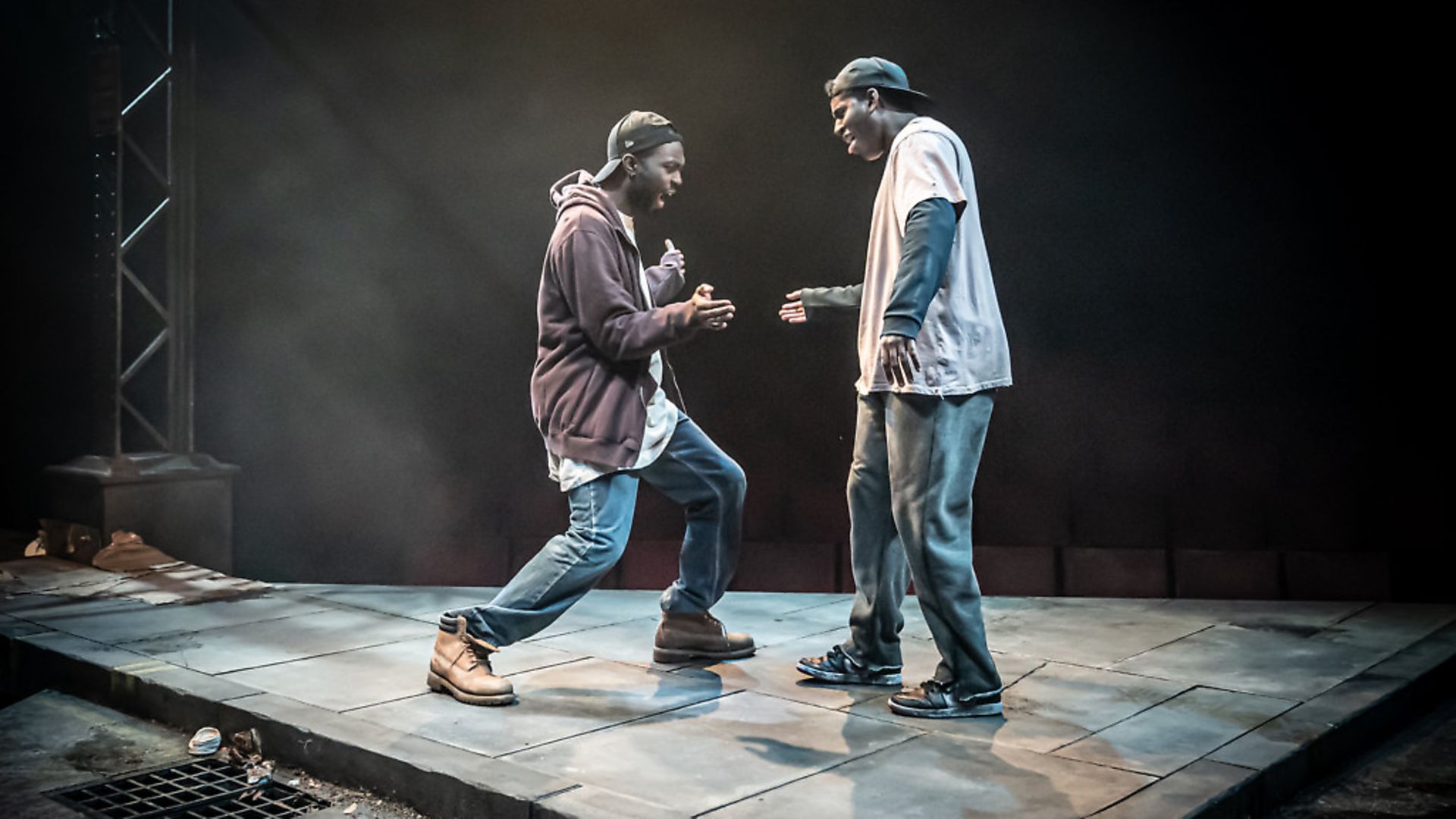
TIM WALKER reviews at Pass Over at the Kiln Theatre in London.
Theatre directors talk sometimes about doing “word plays”, which I’ve always taken to be a slightly withering way of saying they’re getting together some actors to spout a lot of text. The old rule is “show, don’t tell”, but how else can a story be told if not through words?
I know it can, of course, be done to an extent through action, senses and feelings – the looks on the actors’ faces, and so on – and, yes, Samuel Beckett’s Krapp’s Last Tape comes to mind, not to mention the entire silent era in Hollywood. Music can also convey atmosphere and so can a good set design and lighting.
I think, too, of my late, lamented friend Patrick Garland telling me he always regarded a silence – used at precisely the right juncture – as one of the greatest weapons he possessed in his armoury as a director.
Playwrights generally have too much self respect to talk in such terms of doing a “word play”, but sometimes they have a go at rationing the words they use, and it’s never easy. One therefore admires Antoinette Nwandu for making a pretty fair stab at it in Pass Over, which she wrote partly as a response to the 2012 shooting of the black teenager Trayvon Martin in Florida, but she also says she was inspired by Waiting for Godot and the Book of Exodus.
The piece focuses on the lives of two homeless black Americans, Moses (Paapa Essiedu) and Kitch (Gershwyn Eustache Jr), who spend their days communicating not so much through words as gestures and ways of walking and inter-acting.
There are a lot of long silences. Leaf through the script and the words appear like long thin pillars on each page, and, seldom, if ever, do any of the characters get to speak a line that stretches to a point anywhere near to the spine of the book.
The arrival of a white stranger called Mister (Alexander Eliot) means the sentences become, for a spell, longer and more grammatical and the rhythm changes, which is a neat enough way of emphasising the culture clash. It is a play in which not a lot happens – rather like Godot – and yet it does: the characters are quietly and painstakingly established to the extent that there is something of an inevitability about the way it ends.
There’s always in the production of a play a power struggle between the director and the playwright and one can see very well why Indhu Rubasingham feels especially proud of this work. The fewer the words, the greater the power of the director. This production is very much Rubasingham’s personal triumph because she has made something out of so very little. There’s no question that she has been ingenious, and her actors have responded well to a formidable challenge, but I do wonder if this isn’t ultimately about making a point rather than seeking to entertain.
Pass Over is at the Kiln Theatre in London until March 21st.










